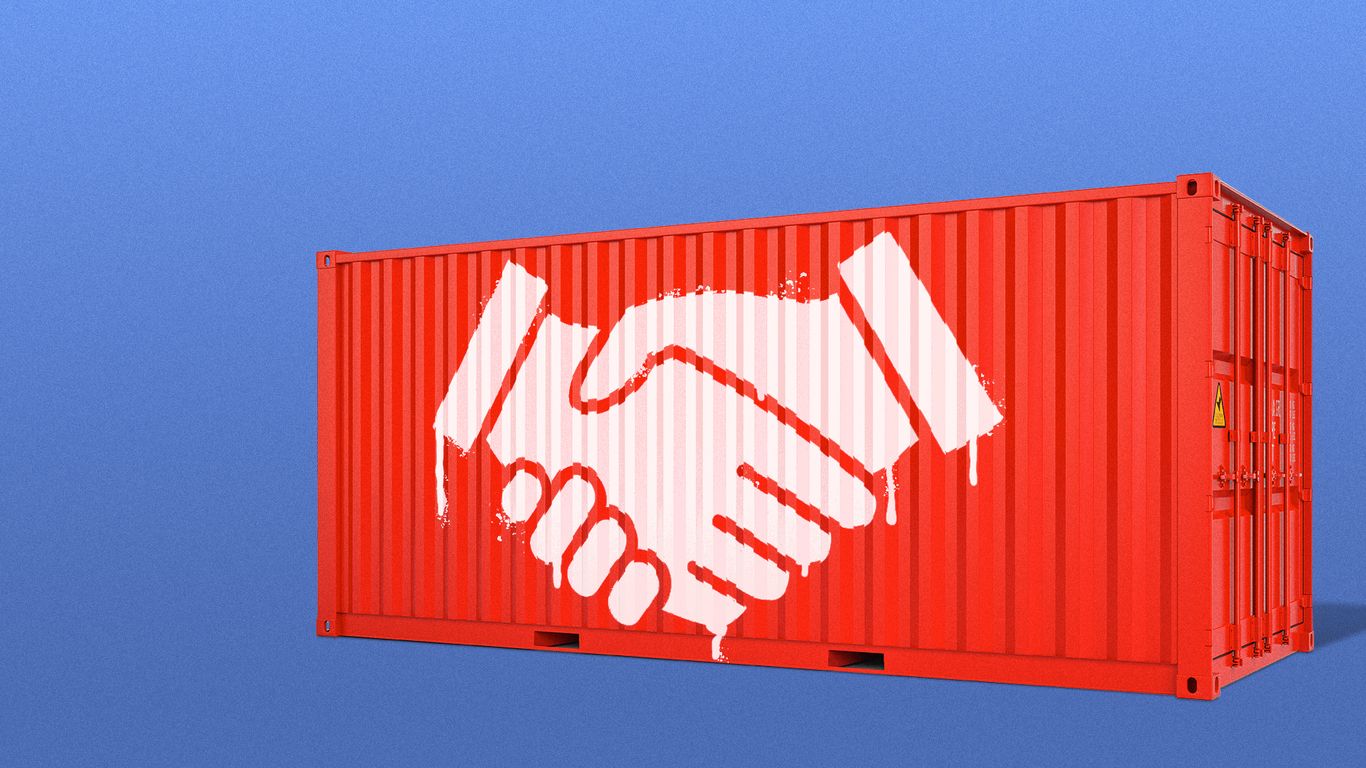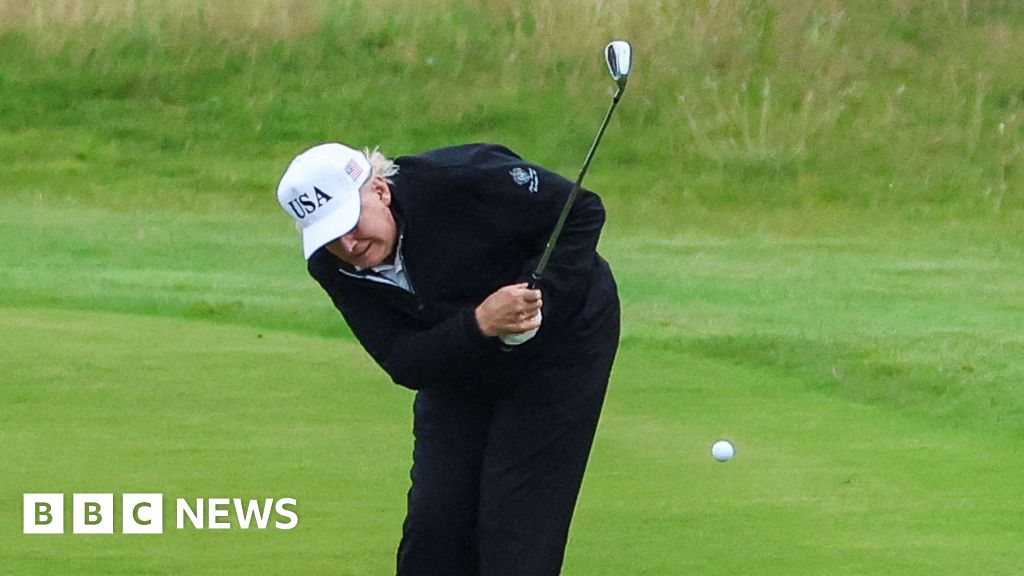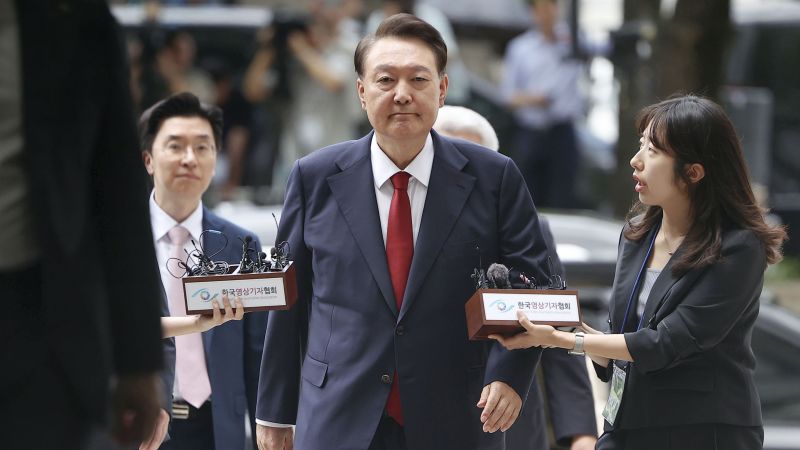Former South Korean President Sparks Controversy with Defiant Interrogation Tactics
#south_korea #president #controversy #interrogation #detainee
Introduction
Former South Korean President Yoon Suk Yeol has once again refused to attend questioning by investigators, but this time he took a drastic step. On Friday, Yoon removed his prison uniform and lay down on the floor of his detention room in an attempt to resist the interrogation. This bold move has sparked controversy and raised questions about the treatment of high-profile detainees in South Korea.
Key Details
This is not the first time Yoon has refused to attend questionings by investigators. He has been in detention since March, awaiting trial on charges of bribery and abuse of power during his time in office. However, this latest act of defiance has caused a stir as it goes against the norms of the South Korean justice system where detainees are expected to cooperate with investigations. Yoon's actions have also highlighted the ongoing power struggle between his supporters and the current administration.
Impact
The controversy surrounding Yoon's actions has shed light on the larger issue of the treatment of high-profile detainees in South Korea. Some critics argue that Yoon's refusal to cooperate is a tactic to gain public sympathy and pressure the government. However, others see it as a sign of Yoon's determination to fight against what he believes is an unjust prosecution. The outcome of this case will have implications for the future of South Korean politics and the handling of high-profile detainments.
About the People Mentioned
Yoon Suk Yeol
Yoon Suk Yeol, born December 18, 1960, in Seoul, South Korea, is a lawyer and former public official who served as prosecutor general from 2019 to 2021 and as South Korea's president from 2022 to 2025.[1][2][5] Rising through a 26-year prosecutorial career, he gained prominence for investigating corruption during the Park Geun-hye and Lee Myung-bak presidencies, earning a reputation as a hardline anti-corruption figure.[1][2][4] In 2016, he contributed to the impeachment and conviction of President Park by working with Special Counsel Park Young-Soo, making him a national symbol of justice.[1] Appointed chief prosecutor of the Seoul Central District Prosecutors’ Office in 2017 by President Moon Jae-in, Yoon later clashed with Moon's administration, notably by probing Justice Minister Cho Kuk’s alleged corruption, which boosted his conservative popularity and led to his 2021 resignation.[1][2][4] As a political novice, Yoon won the March 9, 2022, presidential election for the People Power Party by the narrowest margin in South Korean history—48.56% to Lee Jae-myung’s 47.83%—and was sworn in on May 10.[1][2][3][4] He relocated the presidential office from the Blue House to Yongsan’s Defense Ministry compound, converting the former into a public park to symbolize reduced imperial power, though the move drew controversy.[1][2] Yoon adopted a hawkish stance on North Korea, prioritizing denuclearization over end-of-war declarations, enhancing U.S. alliance defenses, and responding firmly to provocations.[4] His presidency ended amid crisis: on December 3, 2024, Yoon briefly declared martial law to counter alleged “pro-North Korean” forces but reversed it hours later after National Assembly opposition.[1][3] Impeached on December 14, 2024, by a 204-85 vote after some party members defected, his powers were suspended, with Prime Minister Han Duck-soo acting as president; Yoon’s approval had plummeted to 11%.[1][3] (298 words)
About the Organizations Mentioned
South Korean justice system
The **South Korean justice system** is the judicial branch of the South Korean government, established by the Constitution to ensure the rule of law, protect rights, and administer justice. It operates a **three-tier court hierarchy** comprising district courts, high courts, and the Supreme Court as the highest ordinary court. The system also includes specialized courts such as the Patent Court, family courts, administrative courts, and bankruptcy courts, reflecting a sophisticated and specialized judicial infrastructure[1][2][3]. Historically, South Korea’s judiciary was formally established after the country’s division in 1948, adopting a civil law system influenced by continental legal traditions and elements of American law, such as trial by jury introduced in 2008 for certain criminal cases[4][7]. The judiciary is divided into ordinary courts and military courts, with the Supreme Court having final appellate authority in both. Additionally, the **Constitutional Court of Korea** exists as a separate entity responsible for constitutional review, impeachment, and resolving disputes among government agencies, composed of nine justices and a president. The relationship between the Supreme Court and the Constitutional Court has occasionally been complex due to overlapping jurisdictions[1]. Key achievements include the establishment of a highly structured legal framework, with a comprehensive Penal Code enacted in 1953 and ongoing reforms like the introduction of jury trials to enhance transparency and fairness in criminal justice. The judiciary actively reviews the constitutionality of laws and administrative actions, playing a critical role in preserving democratic governance and human rights[5][3]. Currently, the Supreme Court of Korea consists of a Chief Justice and 13 justices, with panels of justices handling cases to ensure efficiency. The court system embraces both inquisitorial and adversarial elements, emphasizing due process, judicial independence, and public trust[3][6]. Notable aspects include the existence of a specialized Patent Court that supports South Korea’s technology-driven economy by adjudicating intellectual property disputes, highlighting the judiciary’s role in fostering innovation and business development[2]. In













